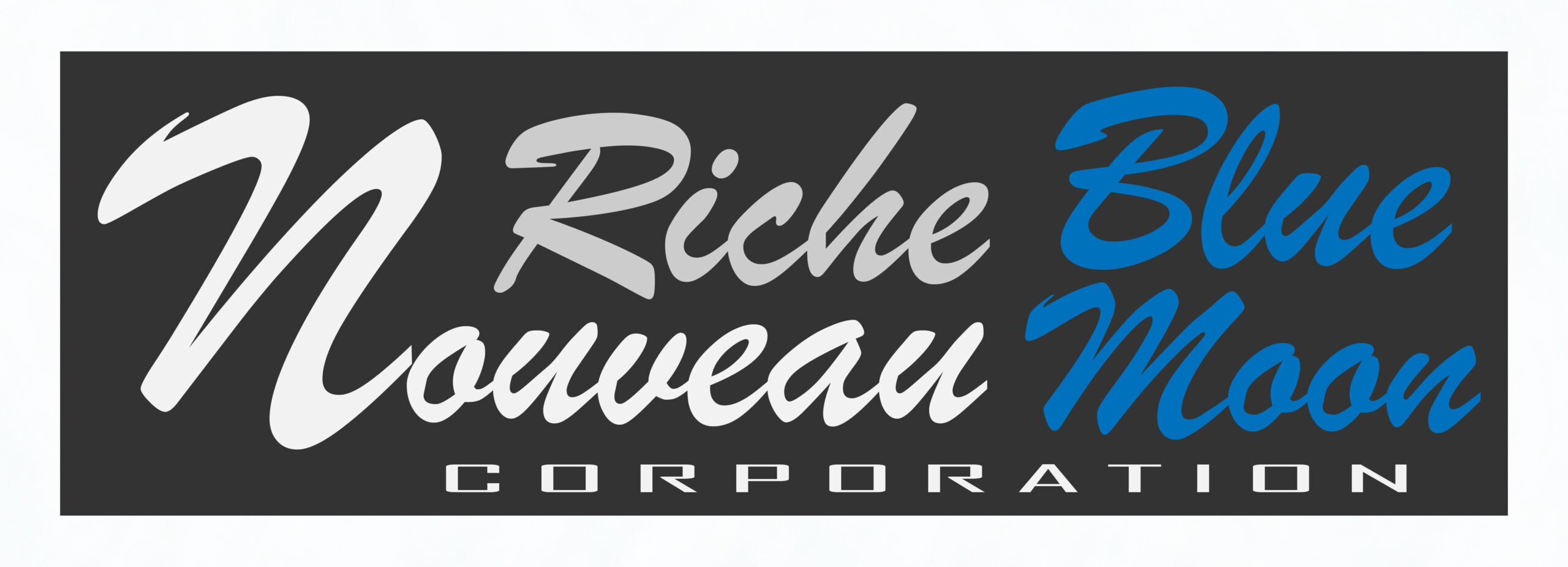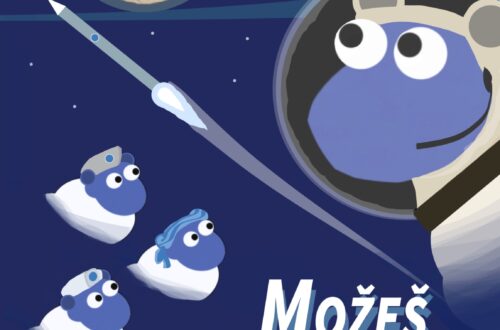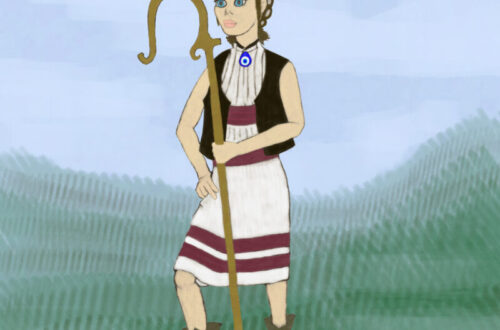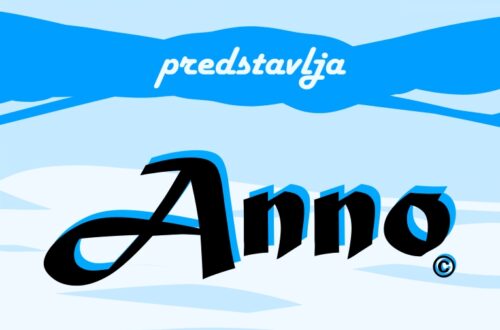
The American English you never hear – Američki engleski kakav nikad ne čujete
Izvornik napisan na američki engleskom jeziku.
Neovisni Paćeni prevoditelj –
Some funky words. – Neke ‘funky’ riječi.
Let’s talk about that sentence above. I choose some words that are now in their ironic stage of popularity. Depending on the inflection and the age of the speaker, funky can be an adjective for smelling like body odor. I would also define it as:
Popričajmo o rečenici poviše. Odabrao sam neke riječi koje su trenutačno u ironičnoj razini popularnosti. Ovisno o infleksiji i dobi govornika, ‘funky’ može biti pridjev koji opisuje mirise tijela. Također bih definirao tu riječ kao:
It is an adjective describing something that is full of complex moving pieces that flow together so smoothly and effortlessly that the flow obtains an aesthetic value, almost independent of the overall goal of the movements.
Radi se pridjevu koji opisuje nešto što je puno složenih dijelova koji se pomiču zajedno tako glatko i bez napora da tijek dobiva estetsku vrijednost, gotovo neovisnu o općem cilju pokreta.
I love language. When my dad drove me to school growing up, I remember a guy on the radio that would sit in once a month and give the history and usages of words and phrases. Over the last few weeks I have been writing down some words and phrases that are not intuitive. A lot of them are words that I doubt Croatians would have heard from our media. Los Angeles and New York still writes and produces a lot of the media that you have digested from American movies and shows. If you do see representations of people who live in the southern regions of the U.S. in our media, it is as seen through the eyes of people who live on the ocean coasts.
I hope that outside of those who find this stuff interesting, Croatian students of English might get some applicable information.
Volim jezik. Kada me otac vozio u školu kada sam bio mlađi, sjećam se da je bio jedan voditelj na radiju koji bi jednom mjesečno imao emisiju o povijesti upotrebe različitih riječi i fraza. Tijekom posljednjih nekoliko tjedana zapisivao sam neke riječi i fraze koje nisu intuitivne. Puno njih su riječi za koje sumnjam da bi Hrvati čuli iz naših medija. Los Angeles i New York i dalje pišu i proizvode mnogo medija koje ste probavili iz američkih filmova i emisija. Ako vidite scene ljudi koji žive u južnim regijama SAD-a u našim medijima, to je viđeno kroz oči ljudi koji žive na obalama oceana.
Nadam se da osim onih koji smatraju ove stvari zanimljivima, hrvatski studenti Engleskog jezika saznaju nekoliko korisnih informacija.
“He has started drinking his own bath water.” – “Počeo je piti vlastitu vodu za kupantje.”
I enjoy this one. It is what could be called a “folksy” saying. It is not a line from a disaster survival movie. It is also not a new health fad, though people who jump on health fads a lot, often could be described by this.
U toj rečenici baš uživam. Može se reći da je to “lokalna” uzrečica. Ne radi se o tekstu iz nekog filma u kojem se preživljavaju katastrofe. To također nije novi zdravstveni hit, iako se ljudi koji se često oslanjaju na zdravstvene hitove često mogu opisati tim riječima.
I remember hearing it when I was a child. It evoked some odd mental imagery that I still remember to this day. In case it was not obvious, this is not a positive thing to put onto someone. It describes someone who has recently begun to listen to the compliments of others a little too much. They have become arrogant and specifically believe that their talents are infallible.
Sjećam se da sam je čuo kada sam bio dijete. Izazvala je neke čudne mentalne slike kojih se i danas sjećam. U slučaju da nije bilo očito, to nije pozitivna stvar za pripisati nekome. Opisuje nekoga tko je nedavno počeo malo previše slušati komplimente drugih. Postali su arogantni i posebno vjeruju da su njihovi talenti nepogrešivi.
I emphasize that the person must have recently started to act this way. It is an observation of a change not of a long-standing trait.
Naglašavam da se osoba morala tek nedavno početi tako ponašati. To je opažanje promjene, a ne dugotrajne osobine.
Well to do? “Well” – Sometimes it actually is “good” – Well to do? “Well” – Ponekad je zapravo “good“
This is one specific for the students of English. I have been digesting a lot of material about the Croatian language. I am watching a lot of videos about Croatian from native speakers. They have been such a well of knowledge and are incredibly helpful. I noticed on several occasions Croatians overextending the use of the word “well”. It was the first of this list that I came up with. I wanted to provide a bit of clarification to those who have provided me so much clarification about their native language. It is also particularly fascinating to me because it is the opposite problem that native English speakers have. I think that is the source of the error.
Ovo je specifičnost učenika engleskog jezika. Prošao sam dosta materijala o hrvatskom jeziku. Pogledao sam puno videa o hrvatskom jeziku od izvornih govornika. Imaju ogromno znanje i od nevjerojatne su pomoći. Primijetio sam u nekoliko navrata da Hrvati pretjerano koriste riječ “well”. Bila je to prva riječ s ovog popisa koju sam smislio. Htio sam dati malo pojašnjenja onima koji su mi dali toliko pojašnjenja o njihovom materinjem jeziku. Također mi je posebno fascinantna jer je to suprotan problem od onoga koji imaju izvorni govornici engleskog jezika. Mislim da je to izvor pogreške.
To start, “well” can be a noun. We are not interested in that form of the word.
Za početak, “well” može biti imenica. Ne zanima nas taj oblik riječi.
As adverb, as in “she speaks well” – “she speaks well”. It is the most common “good/well” usage error. That is also not the one we are looking at specifically. Just to touch base on it, it qualifies that a verb is being done in a way that is appropriate and correct. It is incorrectly omitted and instead “good” is used by native speaker children. That error by adult native speakers is really looked down on. “She speaks good.”
Može biti prilog prilog, kao u “she speaks well” – “ona dobro govori”. To je najčešća pogreška korištenja “good/well”. To također nije upotreba koju posebno promatramo. Samo da se osvrnemo na to, to kvalificira da je glagol učinjen na način koji je prikladan i ispravan. Netočno je izostavljeno i umjesto toga, “good” koriste djeca koja su izvorni govornici. Tu pogrešku odrasli izvorni govornici stvarno gledaju s prezirom. “She speaks good.”
I believe that the Croatian’s error was an overuse of the rule that well overrides good in this form. They said something along the lines of, “it would be well for you to [verb]…”. In their effort to not make the “good/well” error, they extended it to this situation. It would also sound correct to them because “well to do” is another phrase that has a completely unrelated meaning. In the case that they were using, you would say “it would be good for you to [verb]…”. It is never, “it would be well for you to [verb]…”.
Vjerujem da je hrvatska pogreška bila pretjerana uporaba pravila u kojem well nadjačava good u ovom obliku. Rekli su nešto u stilu, “it would be well for you to [glagol]…“. U nastojanju da ne naprave pogrešku “good/well”, proširili su je na ovu situaciju. To bi im također zvučalo ispravno jer je “well to do” još jedna fraza koja ima potpuno nepovezano značenje. U slučaju da su je koristili, rekli biste “it would be good for you to [glagol]…”. Nikada se ne koristi “it would be well for you to [glagol]…”.
On a final note, “well to do” as stated, has another meaning. It is somewhat antiquated but if someone is “well to do” it means that they are affluent. As these kinds of phrases usually go, you will generally hear this from people who are not “well to do”.
Na kraju, “well to do”, kako je napomenuto, ima drugo značenje. To je pomalo zastarjelo, ali ako je netko “well to do” to znači da je imućan. Kako to i obično ide s takvim frazama, ovo ćete uglavnom čuti od ljudi koji nisu “well to do”.
Holler
Most commonly “holler” is used as a verb. To yell out. This is not the usage we are looking at here.
There is also a somewhat rare and very regional usage of “holler”. It is somehow related to “hallow” as they have a similar meanings. You might be familiar with ‘hallow’ as it is in the name of a common American Halloween story. Hallow seems to me to be a more northern term. Holler in Kentucky and the surrounding areas has a wide variety of usages. These usages are ones that I have observed and started using over the last fifteen years.
Najčešće se “holler” koristi kao glagol. Vikati. Ovo nije uporaba koju ovdje promatramo.
Postoji i donekle rijetka i vrlo regionalna upotreba riječi “holler”. To je nekako povezano s “hallow”, odnosno svetinjom, jer imaju slična značenja. Možda vam je poznat izraz ‘hallow’ koji se može primijetiti u nazivu uobičajene američke priče o Noći vještica. ‘Hallow’ mi se čini sjevernijim izrazom. Holler u Kentuckyju i okolnim područjima ima široku paletu upotreba. Ove upotrebe su one koje sam promatrao i počeo koristiti tijekom posljednjih petnaest godina.
The literal noun form is a small, wooded valley. In a lot of cases, it is a valley in which there is only one practical point of access. This is an important detail when we begin to look at the less than literal meanings. It brings to mind an area that is almost protected from the outside by the trunks of trees and the canopy of leaves above.
Doslovni prijevod imenice je mala, šumovita dolina. U mnogim slučajevima, to je dolina u kojoj postoji samo jedna praktična točka pristupa. To je važan detalj kada počnemo promatrati manje od doslovna značenja. Također, to podsjeća na područje koje je izvana gotovo zaštićeno deblima drveća i krošnjama lišća.
Moving along the spectrum of literalness away from pure face value, holler becomes a term for a location that is isolated from the outside world. The phrases “in a holler” or “in the holler” and “back in a holler” are in a generally ascending order of having another layer to their implications. If a speaker goes far enough to say, “back in a holler”, they are speaking in the most figurative form. “Back” as in “in the back of a closet” or the furthest or most inaccessible point that is part of a larger structure that has defined barriers on most of its sides. In this form it gains its cultural soul.
Krećući se duž spektra doslovnosti od čiste nominalne vrijednosti, ‘holler’ postaje izraz za mjesto koje je izolirano od vanjskog svijeta. Fraze “in a holler” ili “in the holler” i “back in a holler” općenito su uzlaznim redoslijedom tako da imaju još jedan sloj svojih implikacija. Ako govornik ode dovoljno daleko da kaže “back in a holler”, govori u najviše figurativnom obliku. “Back” kao u “stražnjem dijelu ormara” ili najudaljenija ili najnedostupnija točka koja je dio veće strukture koja ima definirane barijere na većini svojih strana. U tom obliku dobiva svoju kulturnu dušu.
I can say without any hyperbole that the illegal distillation of alcohol is a fundamental pillar of the cultural identity of Kentucky. I cannot stress the illegal part enough. Traditionally these seasonal distillery sites were setup to avoid taxes and to supplement farming income.
Bez imalo hiperbola mogu reći da je ilegalna destilacija alkohola temeljni stup kulturnog identiteta Kentuckyja. Ne mogu dovoljno naglasiti riječ ‘ilegalni’. Tradicionalno su se te sezonske destilerije postavljale kako bi se izbjegli porezi i dopunili prihodi od poljoprivrede.
“Moonshine”, “Shine” and “White Lightning” are street terms that have not changed over the last one hundred years. Illegal spirits are still popular despite their honor system health code and the fatal consequences of simple mistakes in production. For our purposes here, not much more specific context is necessary. In many cases the family names and locales involved in “moonshining” have not changed in a century either. “Back in a holler” describes those locales. Very isolated with thick forest cover. Areas that are hard to gain access to both geographically and socially.
“Moonshine”, “Shine” i “White Lightning” su ulični termini koji se nisu mijenjali u posljednjih sto godina. Ilegalna alkoholna pića još uvijek su popularna unatoč svom zdravstvenom kodeksu sustava časti i kobnim posljedicama jednostavnih pogrešaka u proizvodnji. U naše svrhe ovdje nije potreban puno određeniji kontekst. U mnogim slučajevima obiteljska imena i lokaliteti koji su uključeni u “moonshining” također se nisu promijenili u stoljeću. “Back in a holler” opisuje te lokalne izraze. Vrlo izolirano s gustim šumskim pokrivačem. Područja kojima je teško pristupiti i geografski i društveno.
“The holler(s)” as a whole is the multitude of stereotypical small hamlets by a stream in a wooded valley. Outsiders are rare and understandably distrusted. Most of their visitors are enforcing taxes, warrants or censuses which has left locals with few good memories of strangers. I will give you a personally learned piece of advice as an adopted son of Kentucky, don’t go into hollers where you don’t have a reason and a contact. Stick to small towns (a few thousand people), they are far more friendly. They tend to have small scale tourist attractions that can be… quant but also painstakingly care for out of local pride.
“The holler(s)” u cjelini je mnoštvo stereotipnih malih zaselaka uz potok u šumovitoj dolini. Autsajderi su rijetki i razumljivo da im se ne vjeruje. Većina njihovih posjetitelja provodi poreze, naloge ili popis stanovništva zbog čega mještani nemaju lijepih uspomena na strance. Dat ću vam osobno naučen savjet kao posvojenom sinu Kentuckyja, nemojte se upuštati u ‘hollere’ gdje nemate razloga za to ni kontakta. Držite se malih mjesta (nekoliko tisuća ljudi), ona su daleko više prihvatljivija. Oni imaju tendenciju da imaju manje turističke atrakcije koje se mogu… neobične, ali i mukotrpno brinuti za lokalni ponos
The final and most abstract use of holler might seem recent, but it is probably as old as any of the other usages. Here holler is used as a symbolic umbrella term that draws heavily from the common urban centric concept that rural people and areas are inconsequential. Your garden variety university student will use it with sarcasm to describe with troubling openness their view of rural people in less than human terms…
Konačna i najapstraktnija upotreba ‘hollera’ mogla bi se činiti nedavnom, ali vjerojatno je stara koliko i bilo koja druga upotreba. Ovdje se ‘holler’ koristi kao simboličan krovni pojam koji uvelike proizlazi iz uobičajenog urbanističkog koncepta da su ruralni ljudi i područja beznačajni. Vaš sveučilišni student bilo koje sorte upotrijebit će tu riječ sa sarkazmom da sa zabrinjavajućom otvorenošću opiše svoj pogled na ruralne ljude na loš način…
2nd Person Plural – Drugo lice množine
It took our German teacher several examples before it sank in for us. For me it was y’all which is a contract that is phonetically spelled to accommodate you all in generalized southern American English. It was hard for us to understand what the teacher was talking about. In normal conversation, simply using you to address multiple people would be confusing.
Našem profesoru njemačkog jezika trebalo je nekoliko primjera prije nego što nam je to sjelo. Za mene je to “y’all”, što je kratica koja je fonetski napisana kako bi se riječ ‘you all’ prilagodila općenitom južnoameričkom engleskom. Bilo nam je teško razumjeti o čemu profesor govori. U normalnom razgovoru jednostavno korištenje riječi you za obraćanje više ljudi bilo je zbunjujuće.
I would never address a group by saying, “you want to go eat?” I don’t think that would sound natural any form of American English. Instead, I use the southern, “y’all wanna go eat?” or “you all want to go eat?” depending on how personal or how professional the conversation is.
Nikad se grupi ne bih obratio riječima: “you want to go eat?“. Mislim da to ne bi zvučalo prirodno ni za bilo koji oblik američkog engleskog. Umjesto toga, koristim južnoamerički: “y’all wanna go eat?“ ili “you all want to go eat?”, ovisno o tome koliko je razgovor osoban ili formalan.
Obviously pluralizing you with an s or es is not correct. That does not mean that it is not in a variety of different regional accents. The typical vaguely Italian-American, New York accent is common in our movies and shows. One of the most synonymous words in that dialect is the pluralization of you when put in the 2nd person plural. “Yous” and “yous guys” are a big part of impressions of that accent. Using an s describes that mostly accurate.
Očito nije ispravno pluralizirati you sa s ili es. To ne znači da nije u nizu različitih regionalnih naglasaka. Tipični nejasni talijansko-američki, njujorški naglasak uobičajen je u našim filmovima i serijama. Jedna od riječi s najviše sinonima u tom dijalektu je pluralizacija riječi you kada se stavi u 2. lice množine. “Yous” i “yous guys” veliki su dio dojmova tog naglaska. Korištenje nastavka s opisuje to uglavnom točno.
In the Pittsburg, Pennsylvania area, the traditional center of the Croatian-American community the s pluralization gets more complicated. For whatever combination of reasons, that area developed yunes in their accent. Here the e is important because the u is a long vowel ü.
U području Pittsburgha u Pennsylvaniji, tradicionalnom središtu hrvatsko-američke zajednice, pluralizacija s nastavkom s se dodatno komplicira. Bez obzira na kombinaciju različitih razloga, to je područje razvilo yunes u svom naglasku. Ovdje je e važno jer je u dugi samoglasnik ü.
I have heard several other American accents where it comes out “yas” or even “yaz“.
Čuo sam nekoliko drugih američkih naglasaka gdje se čuje kao “yas” ili čak “yaz“.
I should note here that “you” can sometimes be just fine as the 2nd person plural. The first example that came to my mind was when politicians give speeches. It does not seem abnormal for a person doing any kind of public speaking to use “you” to address the audience. “I believe in you.” “I would like to talk to you today about…”
Ovdje bih trebao napomenuti da “you” ponekad može biti sasvim u redu kao 2. lice množine. Prvi primjer koji mi pada na pamet je kada političari drže govore. Ne čini se nenormalnim da se osoba koja javno govori obraća publici s “you“.. “I believe in you.” “I would like to talk to you today about…”
In everyday conversation I would always add some other word after you in the sentence. “I would like to talk to you guys about…” is a common replacement of “all” that is counter intuitively not dependent on the group’s gender. It is just an example of the common language trait where a masculine version becomes generalized. If I was addressing my wife and mother, it would not be weird for me to use “are you guys hungry?” That is not to say that it is universal. Some can be more sensitive to being addressed in a generalized masculine way so remember as always to be mindful.
U svakodnevnom razgovoru uvijek bih nakon you u rečenici dodao neku drugu riječ. “I would like to talk to you guys about…” je uobičajena zamjena za “all” koja suprotno intuitivno ne ovisi o spolu grupe. To je samo primjer uobičajene jezične osobine gdje muška verzija postaje generalizirana. Da se obraćam supruzi i majci, ne bi bilo čudno da upotrijebim”are you guys hungry?”. To ne znači da je univerzalno. Neki mogu biti osjetljiviji na oslovljavanje u općenitom muškom rodu pa ne zaboravite biti oprezni kao i uvijek.
Don’t use ain’t – Nemojte koristiti ain’t
Never use this cursed word. It has none of the charm and smooth throat sounds of y’all. Ain’t is harsher in tone and is not endearing. Perhaps it is because it is a response in the negative that made it age poorly. It is a negative qualifier. For sure the word not is in ain’t.
Nikada nemojte koristiti ovu prokletu riječ. Nema nimalo šarma i glatkih grlenih zvukova kao y’all. Ain’t je oštrijeg tona i nije umiljat. Možda je zbog toga što je negativan odgovor loše ostario. To je negativan kvalifikator. Riječ not zasigurno je u ain’t.
It was treated like a swear word growing up in my house. My mother had a rule that we did not use the word ain’t. Even to southerns, it is a disdainfully tacky word to use. It is commonly insert it into impressions of those who are really “back in a holler“.
Tretiralo se kao psovka dok sam odrastao u mojoj kući. Moja majka je imala pravilo da ne koristimo riječ ain’t. Čak je i za južnjake to prezrivo neukusna riječ. Obično se to ubacuje u dojmove onih koji to stvarno jesu”back in a holler“.
The best translations to me are: “I ain’t got…” or “I ain’t had” instead “I have not had.” It can also be, “to not be“. “I ain’t…” instead of “I am not“. It has no problem going into the future tense, “I ain’t going to”.
Meni su najbolji prijevodi: : “I ain’t got…” ili “I ain’t had” umjesto “I have not had.” Također može biti “to not be“. “I ain’t…” umjesto “I am not“. Nije problem prijeći u buduće vrijeme, “I ain’t going to”.
For the other words that I have listed here, in general, people here would like the fact that you know some regional terms. This is not one of those. A non southern saying it in normal conversation would be slightly jarring in its oddity. We are generationally accustomed to our own media using it along with vile and less than honest appraisals of southern character. A good number of any Americans you interact with would find any non southerner using it to be some form of mocking the accent in general.
Što se tiče ostalih riječi koje sam ovdje naveo, općenito bi ljudi ovdje voljeli činjenicu da znate neke regionalne pojmove. Ovo nije jedna od tih. Ne-južnjak koji bi to rekao u normalnom razgovoru bio bi malo uznemirujući svojom neobičnošću. Generacijski smo navikli da ga vlastiti mediji koriste uz podle i manje poštene procjene južnjačkog karaktera. Dobar broj Amerikanaca s kojima komunicirate smatra da bilo koji ne-južnjak to koristi kao neki oblik ismijavanja naglaska općenito.
Simply put, there is no real positives and a lot of negatives to using ain’t. Don’t lower yourself to using it. There’s always a better way of putting it.
Jednostavno rečeno, nema pravih pozitivnih strana, a nema ni puno negativnih strana korištenja riječi ain’t. Ne spuštajte se toliko nisko da koristite tu riječ. Uvijek postoji bolji način da se izrazite.
Bringing it back – Vratimo se natrag
I have enjoyed thinking through all of these and trying to frame for you. I enjoy thinking through language usage and the nuts and bolts of it’s mechanisms. As we begin rolling out more content, if you enjoy something we’re doing, please let us know, especially on social media. We only produce things we enjoy and are passionate about but if one of them is more popular, we want to give it some level of priority in production.
Uživao sam razmišljajući o svemu ovome i pokušavajući vam dati što više objašnjenja. Uživam razmišljati o upotrebi jezika i raznim mehanizmima koji ga opisuju. Kad počnemo objavljivati više sadržaja, ako vam se sviđa nešto što radimo, javite nam, osobito na društvenim mrežama. Radimo samo stvari u kojima uživamo i koje volimo, ali ako je jedna od njih popularnija, želimo joj dati neku razinu prioriteta.





